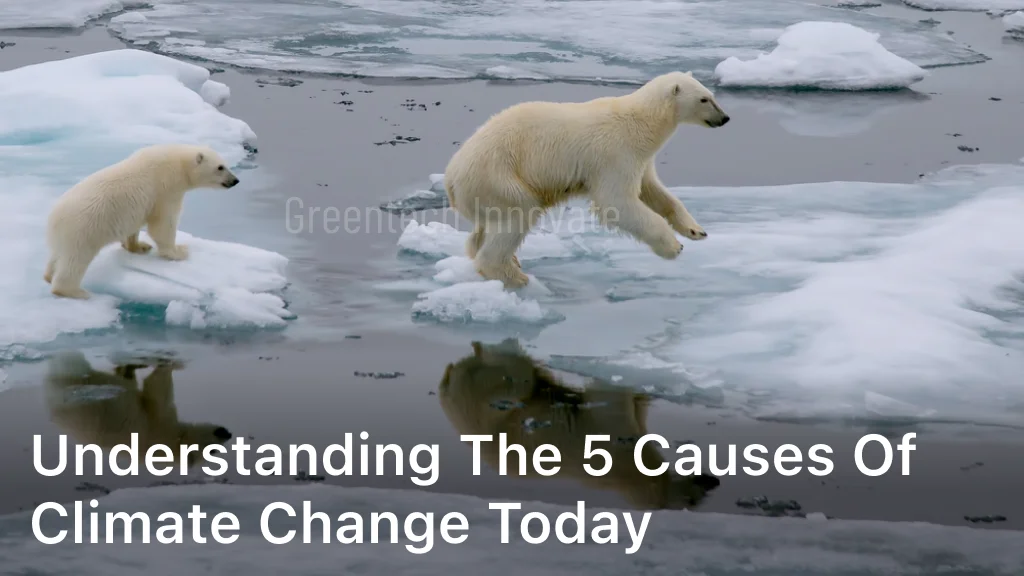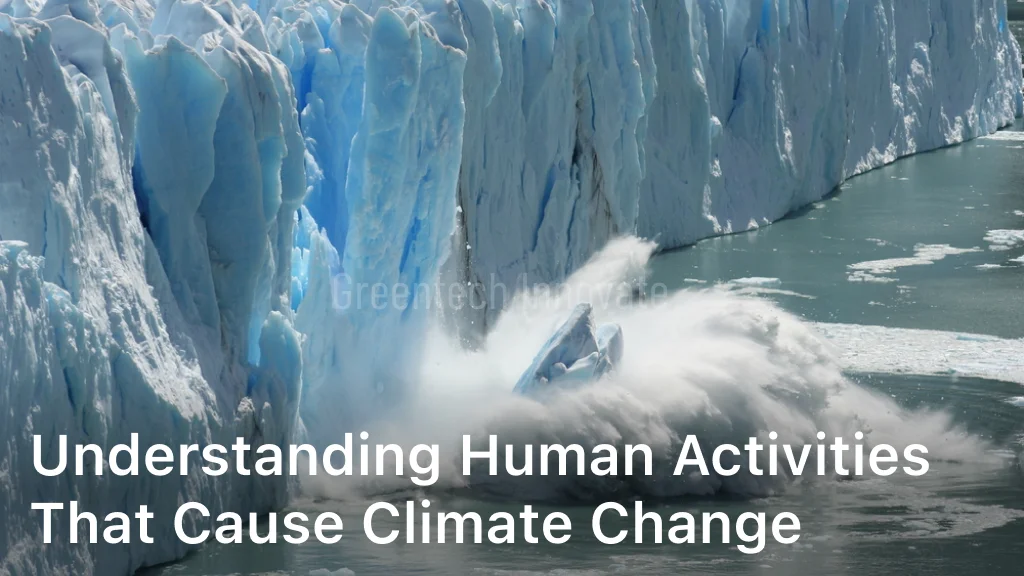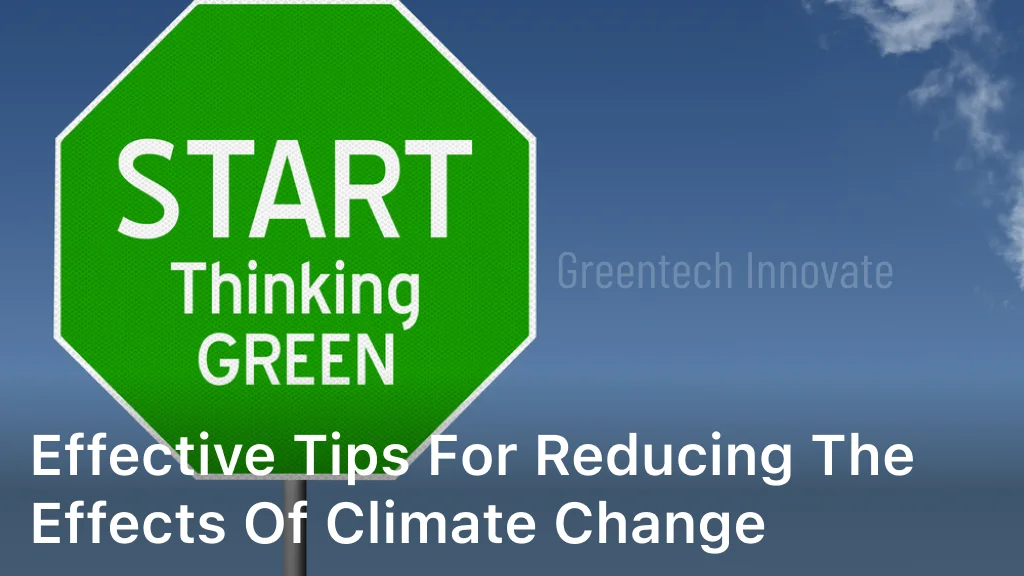
How to Reduce Climate Change – The effects of climate change are already hurting our health, communities, economy, and security. Plus, they’re jeopardizing our children’s future. Americans produce about 4 times more carbon emissions than the world’s average person each year.
Yet, the key is personal actions. As they say, “change only happens when individuals take action.” This article lists 12 simple yet effective ways to reduce climate change.
Step one is to switch to renewable energy sources. Then, focus on making your home more energy efficient. Also, join in on sustainable and community-oriented activities.
These are just a few ways to cut down on your carbon footprint and help fight climate change. By changing our habits and backing eco-friendly policies, we’re paving a way for a better future for us and those who come after.
Speak Up and Raise Awareness
Taking action against climate change starts with speaking up. Let’s tell our elected leaders to make laws that protect our planet. When we speak out, they listen because they work for us.
Voice Your Concerns to Elected Officials
Telling your congresspeople and local leaders about your worries is a big deal. Ask them to back laws that help the environment, like more clean energy. Make it clear that you and others really care about this.
Encourage Climate-Friendly Policies
Don’t stop at talking to your reps. Join up with groups pushing for cleaner laws and actions. They want to stop harmful pollution and make big changes.
Your help can make our voices stronger. Together, we can really push for the changes we need to save our earth.
Promote Climate Action on Social Media
Using social media for good means sharing facts and stories about climate change. Ask your online friends to join you in making a difference. Spread the word and get more people on board to help fight climate change.
Switch to Renewable Energy Sources
Moving to renewable energy helps cut our carbon footprint and tackle climate change. Go for a utility company using mostly wind and solar energy. Many now offer certified green energy.
Choose a Utility Company with Green Energy Options
If your current seller isn’t green enough, switch it up. Find providers with over 50% of their power coming from renewables. They also have eco certifications. This choice helps push the use of green energy and lessens fossil fuel use.
Install Solar Panels or Wind Turbines
Putting solar panels or wind turbines on your property is another option. Solar panels use sunlight to make power, and wind turbines turn wind into electricity. The first cost might be high, but they cut your carbon output and save on bills in the end. Look up local incentives and financing options to make going renewable easier.
Improve Energy Efficiency at Home
Working on energy efficiency at home is key to lessening our carbon footprints. It helps in fighting climate change too. This way, we cut down on energy costs significantly and do good for the planet.
Weatherize and Insulate Your Home
Almost half of your home’s energy goes into heating and cooling. This means it’s really important to weatherize and insulate your place. Fixing drafts, adding insulation, and having an energy audit done are big steps toward using less energy. They will also lower your utility bills.
Upgrade to Energy-Efficient Appliances
Swapping out old, energy-hungry appliances for Energy Star ones is a smart move. Appliances like fridges, washers, and dishwashers can use up to half the energy. They also use less water, saving you money and helping the planet at the same time.
| Energy Efficiency Measure | Average Annual Savings |
|---|---|
| Weatherizing and Insulating Your Home | $200 – $500 |
| Upgrading to Energy-Efficient Appliances | $100 – $400 per appliance |
By making your home more energy efficient, you can lower your bills. Plus, you do your part in the fight against climate change.
Conserve Water and Reduce Waste
We all have a critical part in saving water and cutting down waste. These efforts greatly help fight climate change. Simple changes in our daily habits can aid in using water better and lowering our impact on the earth.
Install Water-Saving Fixtures
Putting in WaterSense fixtures and appliances is a great step. They use 20% less water but still work well. Changing to new showerheads, faucets, and toilets can drop your household’s water use. Plus, it cuts down on the energy needed to treat water.
Compost Organic Waste
By composting, we reduce waste and help the planet. This includes scraps from food and garden. Besides keeping these out of landfills, it enriches the soil and cuts down on harmful gases like methane.
Make Eco-Friendly Lighting Choices
As we aim to lower our impact on the planet, choosing eco-friendly lighting is key. Moving to LED light bulbs is a powerful step. They use less power than traditional bulbs while giving off just as much light.
Switch to LED Light Bulbs
LED light bulbs offer a big leap in green lighting. They cut back on energy use, saving you money. For example, swapping one old bulb for an LED can save $125 while lasting longer.
The perks of LED bulbs are clear. They use up to 80% less energy and can last for thousands of hours. This means you won’t have to change them often, cutting down waste.
Imagine if all U.S. homes changed just one bulb to LED. It would stop 7 billion pounds of carbon waste each year. That’s like taking nearly 650,000 cars off the streets. Doing this helps us all build a greener future.
how to reduce climate change
We all have a big part in fighting climate change. The choices we make about travel matter a lot. By picking cars that use less fuel, keeping them in good shape, and using options like buses and bikes, we can help the planet. This reduces how much we harm the environment with our actions.
Drive Fuel-Efficient Vehicles
Getting a car that’s good on gas helps in many ways. By 2025, cars in the U.S. have to be much cleaner. These new rules will not just save fuel and money but drop the pollution from cars a lot.
Maintain Your Vehicle for Optimal Fuel Economy
Regular care like checking tire pressure and getting tune-ups matters too. Also, taking off extra things on the car helps it run better. These small steps improve how our cars affect the Earth.
Choose Eco-Friendly Transportation Options
Living where it’s easy to walk or find a bus also makes a big difference. Walking, biking, or using buses cuts down on the pollution our cars make. It’s good for the Earth when we use our cars less.
Reduce, Reuse, and Recycle
Every one of us plays a big part in cutting down waste and making sure we recycle properly. Did you know the average American makes about 4.5 pounds of trash daily? But by recycling and composting, we can control more than a third of that trash.
Minimize Waste and Consumption
Starting with “reduce” is crucial for lowering waste. We should think about what we buy and try to use less. It’s also good to pick things that we can use again and again. This way, we throw away less stuff.
Recycle Properly According to Local Guidelines
Recycling right can do a lot for our environment. In 2014, recycling stopped as much pollution as 38 million cars make in a year. Knowing what we can recycle and sorting it correctly is key. This makes our recycling work better.
Support Sustainable Agriculture
Almost 10% of the United States’ energy is used to get our food to us. Sadly, 40% of this food is wasted. By supporting sustainable agriculture, we can cut down on this waste and its impact on the environment.
Buy Local and Organic Produce
Choosing local and organic foods is a great start. This food doesn’t travel as far, which means fewer greenhouse gas emissions. It also supports farmers who don’t use harmful chemicals, promoting healthy ecosystems. Such farming methods help in producing not only nutritious but also tasty food.
Reduce Food Waste
Reducing food waste is another key step. Planning meals, shopping carefully, and composting food scraps can help. These actions lower the amount of food that ends up in the trash. Rotting food in landfills creates methane, a strong greenhouse gas. Composting turns food scraps into valuable soil, benefitting gardens and farms.
Embrace a Sustainable Lifestyle
Embracing a sustainable lifestyle is vital today. It helps reduce our environmental impact. Cutting back on plastic use plays a big role. Plastic is a major pollutant in our oceans and waterways. By using less plastic and recycling it properly, we protect the environment.
Using better personal care products also matters. Many products, like shampoo, soap, and cleaners, have harmful chemicals. These chemicals can join air pollution. Choosing eco-friendly options instead lowers pollution and supports a cleaner world.
Reducing plastic use and picking eco products can make a big difference. It helps fight climate change. And, it leads to a better future for both us and those who come after us.
Get Involved in Community Initiatives
We all can fight climate change alone, but our work is stronger in groups. Joining local green projects and backing small climate teams makes a big impact. They help in the battle against global warming.
Participate in Local Environmental Programs
Join in on your town’s eco programs to see a real change. You can help clean parks or plant trees. These tasks add up, supporting the earth and fighting the climate crisis.
Support Grassroots Climate Action Groups
Grassroots groups are key in making local change happen. They push for green laws and cheer for renewable energy. You can help them by giving money, time, or talking about their work. Together, we’re stronger against climate change.

Conclusion
Personal actions are not enough to solve climate change, but they matter. Ways we can help include using renewable energy and using less energy. We can also drive less and cut down on waste. Doing this helps in the fight against climate change for us and our future.
The climate crisis is huge, but our efforts do make a difference. Small changes like picking green energy help. So does making sure we recycle. Together, our actions can make a big dent in this global issue. Living sustainably and supporting local projects is key to a better, greener future.
Addressing climate change calls for teamwork. Governments, companies, and individuals must all do their part. Yet, by making the changes mentioned above, we all contribute. Let’s work as a team. Together, we can make a difference for a more sustainable world for everyone.




